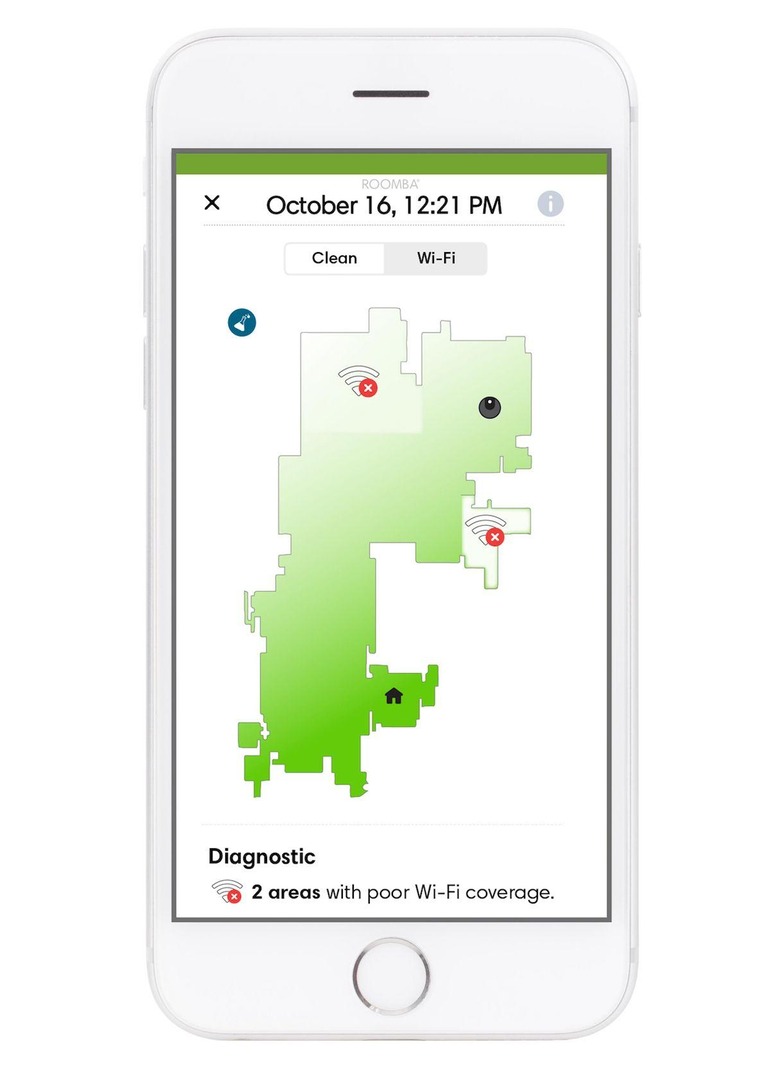Google And iRobot Team To Turn Your Roomba Robo-Vac Into An IoT Mapper
Your Roomba robot vacuum cleaner is turning into a mapping explorer for Google, with the two companies collaborating on better understanding the layout – and the uses – of the smart home. The project promises more efficient interactions between IoT and connected devices, though owners will have to opt-in to see the benefits.
iRobot's latest Roomba models already have WiFi connectivity and Google Assistant integration. The company's recent Roomba i7+, for example, not only builds up a floor plan of the home as it works, but can be instructed via the Assistant to go to a specific room and vacuum there.
Earlier this year, meanwhile, iRobot added WiFi network scanning and logging to its vacuums. The feature, an optional extra that must be manually enabled in the app, combines floor plans with WiFi signal strength. As a result, eventually the robot will be able to flag areas of poor wireless coverage. That then leaves it up to homeowners to decide how to better deploy their router, or whether to install a mesh router system.

This collaboration with Google, though, expands on that considerably. "Robots with mapping and spatial awareness capabilities will play an important role in allowing other smart devices in the home to more seamlessly work together," Colin Angle, chairman and CEO of iRobot, said of the work.
One possibility is that, by better understanding a home's layout, new smart home devices could be more effectively positioned. That could mean ensuring WiFi coverage is sufficient, but might also eventually mean things like choosing the best angle for a connected camera, or the most productive location for a smart thermostat. Google and iRobot say there's also new potential for automations, as different parts of the smart home work in combination.
Still, the two companies are being cautious in how all this is deployed, and making it clear that this will absolutely be an opt-in system. If owners of Roomba robot vacuums only want the basics of cleaning, they won't be expected to also agree to having their floor plans logged or shared with anybody else. That's a lesson iRobot learned the hard way last year.
Back in July 2017, iRobot speculated on the possibilities if it made its increasingly detailed maps of users' homes available to third parties. A "rich map" of the home could have wide-reaching potential, Angle said in an interview, name-checking Apple, Google-owner Alphabet, and Amazon as possible partners. Unsurprisingly, the suggestion met with a privacy backlash, and iRobot was forced to make clear that it had no plans to sell floor plan data without customer permission.
Exactly when the fruits of this new collaboration will become visible remains to be seen. However, with Google Wifi offering mesh networking, and recent products like the Google Home Hub focusing on smart home control, it's clear that Google wants to get a better grip on not only how you interact with the internet of things, but where you are when you do it.
